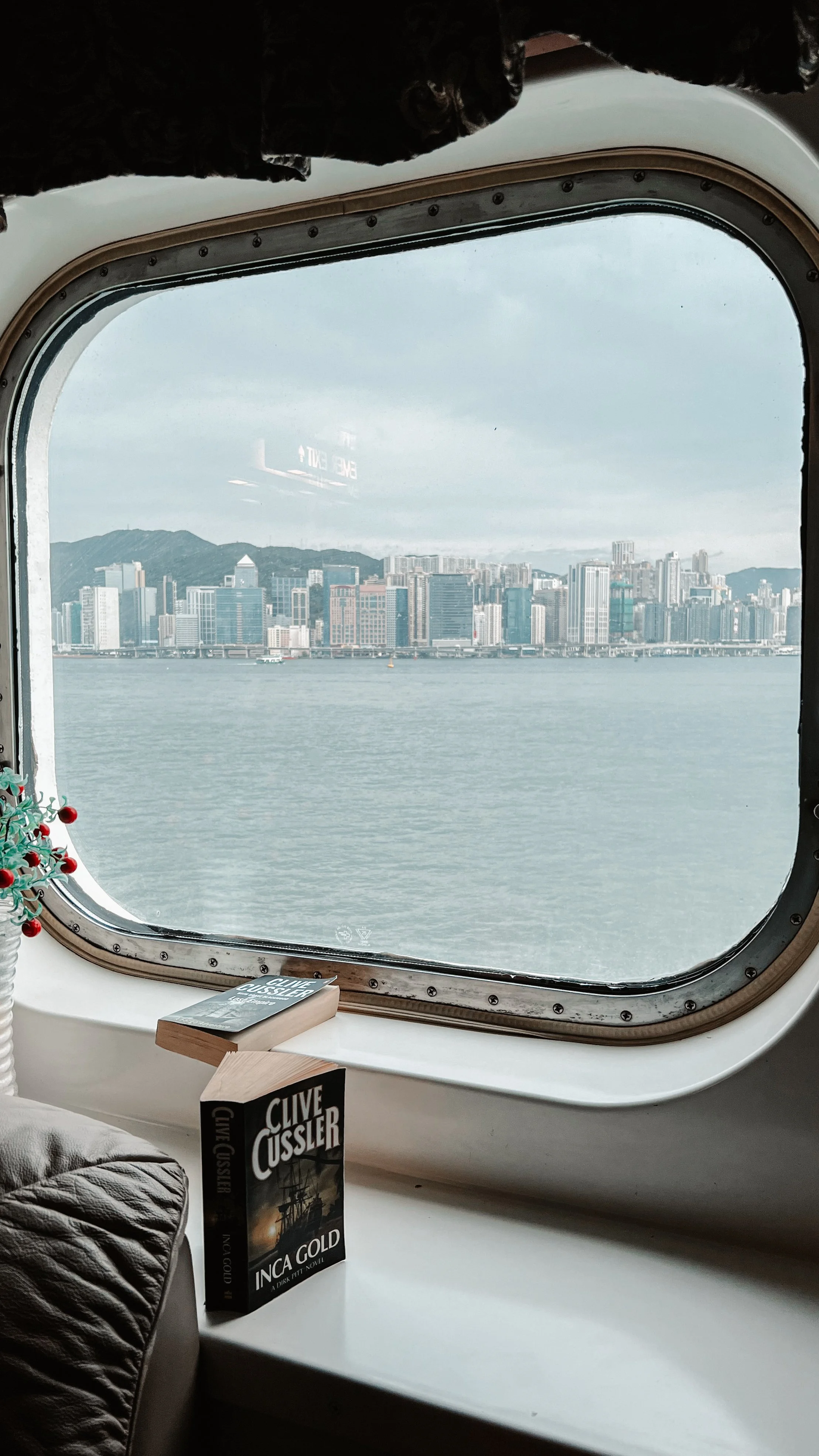How to Cope with Stress while Working on Ships
Stress is part of the job when you're working on ships. Long hours, constant noise, shared cabins, and barely any personal space. Cruise ship crew and other seafarers know this rhythm all too well.
I’m no stress expert. I’m not even the best seafarer, to be honest. I overthink everything. I’ve cried in the ladies’ room. I’ve snapped at people end of shift for no real reason. I’ve felt completely disconnected from myself, and still had to show up five minutes later, smile, write the report, or work side by side with my colleagues like nothing’s wrong.
If anything, I might be a stress expert because I’ve spent so much time not coping well. (Tsk tsk.)
There’s plenty of advice out there on how to cope with stress – eat well, get enough sleep, take a break. Great ideas, if you’re on land with time and space to spare. But when you're living and working onboard, especially on a cruise ship or merchant vessel, a lot of that advice just doesn't apply.
So this post isn’t about eliminating stress. It’s just some of the best ways I’ve found (or seen other crew try) to keep calm and relieve stress quickly at work. Whether you’re on your first contract or your tenth, hopefully one or two of these can help you cope better when the stress starts creeping in.
How to Cope with Stress When You're Living and Working on Ships
1. Write down what’s making you stressed
Sometimes the stress is vague, but sometimes it’s just a list of things piling up. Your supervisor's mood. Cabinmates being loud. Guests being rude.
You don’t need a fancy journal. It’s enough to type it into a Word doc or even just say it in your head: “I’m stressed because of…”
But if you can write it down, even on scrap paper, it helps. There’s something about seeing the thing written out that makes it feel less like it’s controlling you. If you’ve got a tiny notebook, bring it out during breaks. If not, no pressure. Mentally naming the stress is still a step.
2. Do something with your hands
There’s something strangely calming about physical tasks. When your mind won’t stop racing, doing something small with your hands can ground you.
Fold your uniforms slowly. Organise your drawer. Repack your bag. Clean your shoes. Some crew fix their ID lanyards or re-thread buttons.
These aren’t hobbies – just small, simple tasks that don’t require much thinking. When your mind is spiralling, your hands can pull you back to the present.
3. Switch up your surroundings
Ship life can feel like the same four walls, over and over. If you're always in the same break room, same deck, same seat in the mess – move.
Sit somewhere new in the mess or crew quarters. Stand on the opposite side of the deck than you usually do. Take the long way to your work area. If you’re on cargo ships, maybe it’s hanging out in the galley instead of the cabin during breaks. If you’re on a cruise ship, maybe it’s using a different crew stairwell just to break the pattern.
You’re not escaping. You’re just refreshing your environment a little.
4. Walk the deck
One lap around the boat deck. That’s all it takes.
You don’t have to power walk or turn it into a fitness session. Being near the sea, moving your body, and getting a few minutes of sky can do more for your stress levels than you’d expect.
Some crew do this religiously after work. Some crew run laps in full workout gear. It can be done alone or with others.
5. Find a quiet moment away from everything
Silence is rare onboard, but not impossible.
Maybe it’s in your cabin before your cabinmate gets back. Maybe it’s early in the morning in the crew corridor. Look for a moment where no one’s talking to you, no music’s playing, and no orders are being given.
It won’t be perfectly quiet, but even partial silence helps.
6. Say no to socialising when you’re drained
Just because everyone’s heading to the crew bar or a group meal doesn’t mean you have to. Some nights you’re too tired. Or too anxious. Or just not in the mood to talk.
It’s okay to skip. Eat alone. Stay in. Go to bed early. The people who matter won’t judge you for needing a break. And the ones who do probably aren’t your people anyway.
7. Hold on to a hobby or comfort ritual
The longer you’re onboard, the easier it is to forget the version of you that exists outside of your uniform.
Listen to a playlist that reminds you of home. Re-read a favourite book. Watch the same old series for the nth time. It doesn’t have to be creative or impressive. It just needs to feel familiar. It’s a reminder that you’re not just a crew ID number. You’re still you.
8. Talk to someone who feels safe
Not everyone needs to know your stress. But having one person onboard who won’t judge you – that helps.
It could be someone in your department. Or someone you barely see, but instinctively trust.
You don’t have to pour your heart out. Sometimes it’s just: “I’m not in the mood.” “I’m just tired, man.”
That said, respect their energy too. If they say they’re tired too, respect that. A safe conversation goes both ways.
You’re not looking for deep advice, just a moment of honesty so the pressure doesn’t stay bottled up.
9. Meet the bare expectations on hard days
You don’t need to win crew of the month. You don’t need to go above and beyond.
If you’re running low – physically, mentally, emotionally – focus on meeting the bare expectations. Show up. Do your job. Complete what’s required of you. Keeping things simple is often the most realistic way to stay calm under stress at work.
You’re not falling behind. You’re protecting your energy. And some days, that’s more than enough.
10. Do nothing on breaks or off duty
Not scroll social media. Not catch up on paperwork. Not talk to friends. Just… nothing.
Sit. Lie down. Close your eyes. Stare at the ceiling.
Don’t feel guilty for not “making the most” of your free time by socialising, exercising, or squeezing in errands. When life onboard feels non-stop, choosing to do nothing is giving your brain space to reset.
11. Remind yourself why you took this job
Sometimes you lose sight of it.
Maybe it was for the money. For family. For the experience. For a stepping stone to something else. Whatever it was, you had a reason for working onboard.
It helps to have a visual reminder. On your worst days, reminding yourself of that reason won’t fix everything. But it might get you through to the next shift.
If this post resonated with you, you might also find comfort in my reflection on cruise ship crew mental health, this honest look at how tough ship life can get, or a quiet reminder that burnout at sea is more common than it seems.

















